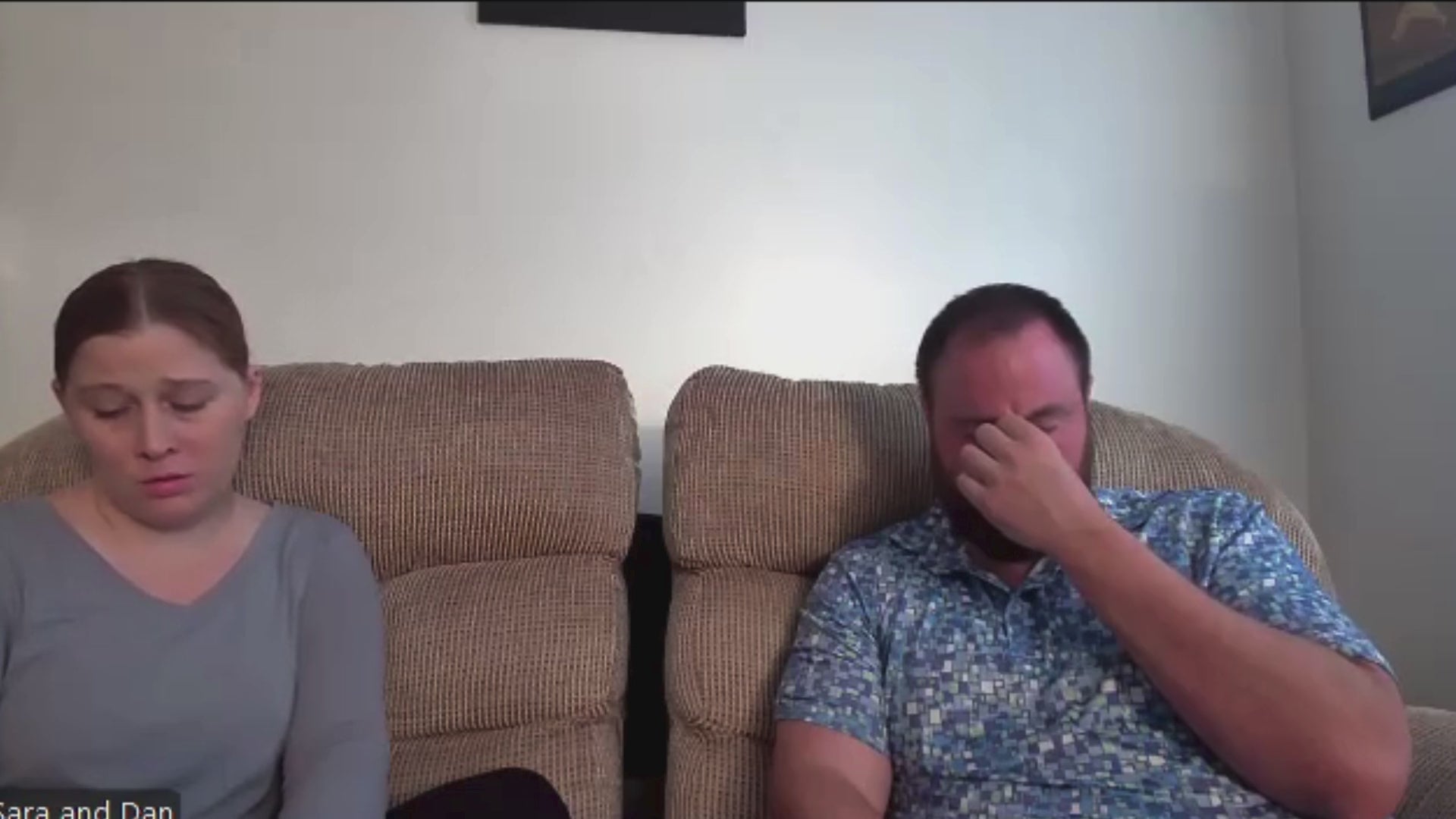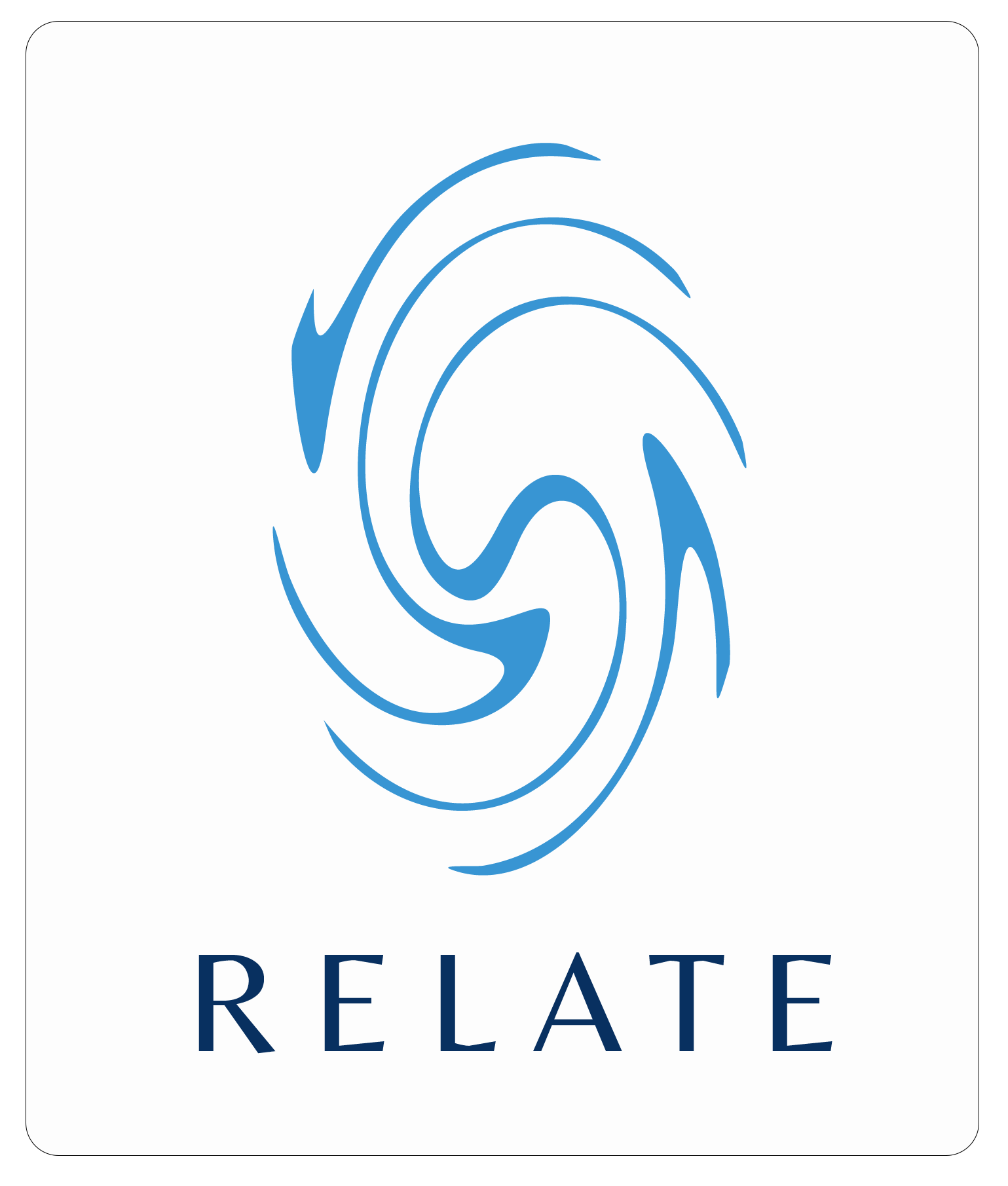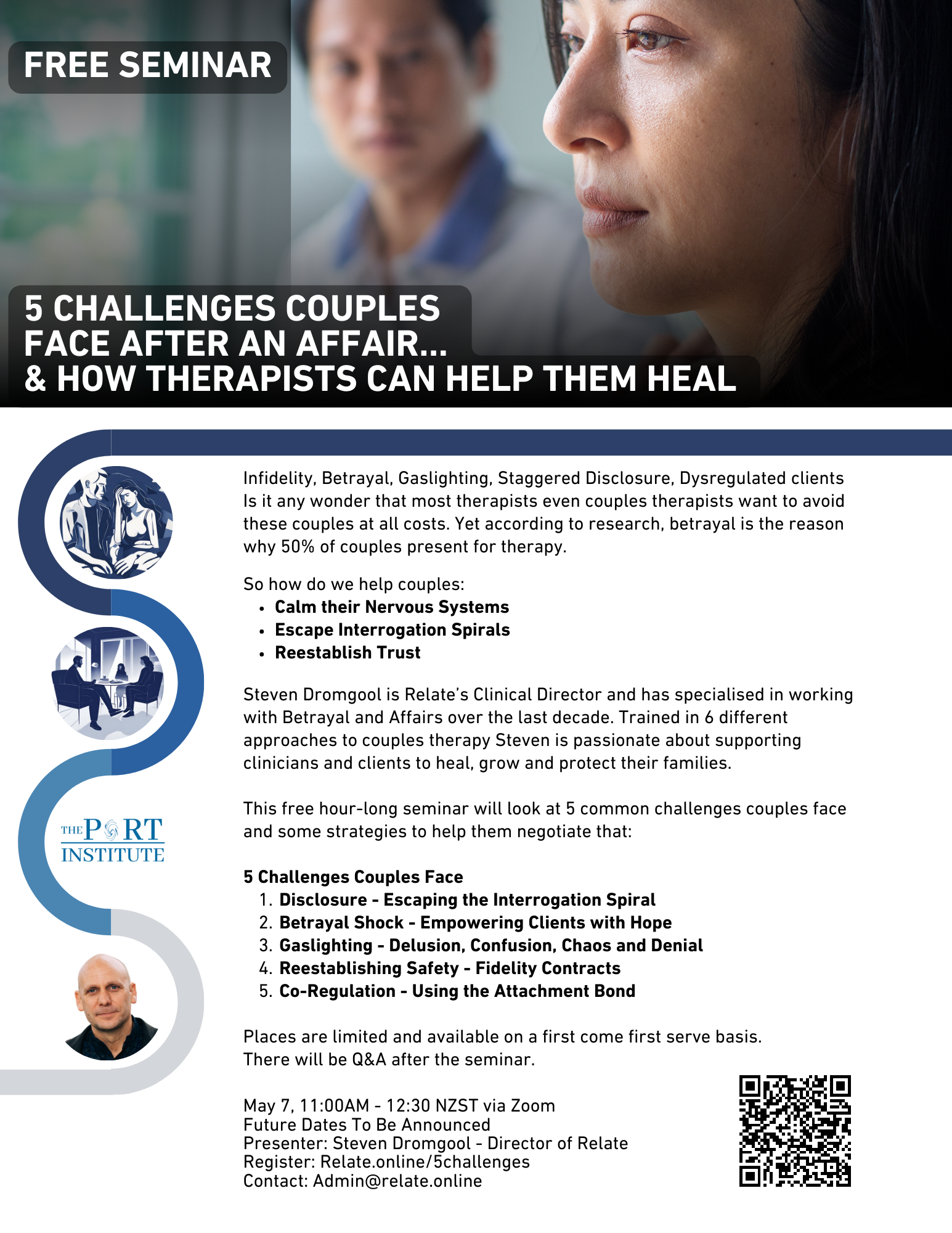

Borrowed Trust: A Therapeutic Tool for Healing from Infidelity
Therapists who want their clients to trust and form loving relationships, will take a deep dive into how they can ‘lend trust’ to facilitate healing.
In his Book, "What makes love last?: How to build trust and avoid betrayal," John Gottman has noted that trust is a primary factor in relationship happiness. After an affair or infidelity, a couple's ability to create and maintain trust is severely, if not completely, destroyed. Trust within a relationship is constructed from the interaction of each individual's sexual and developmental blueprint, their partner, and the early phases of the relationship cycle. Once trust is lost, couples often require an external trust source, typically from professionals or religious figures. This presentation will include a trust equation to help couples create trust and will explain the basics of Betrayal First Aid to aid the betrayed partner's regulation. Helping couples create trust and minimise the harm after betrayal are key to recovery after an affair and long term individual well-being.
Trust is fundamentally an attachment level construct shaped by an individual's developmental history and subsequent relationships. This often remains an unconscious neurodevelopmental construct influenced by social, religious, and experiential factors. Limited or faulty trust beliefs and experiences within individuals and their relationships can engender significant negative long-term relational dissatisfaction and behaviour and poor health outcomes.
Enhancing counselors' understanding of trust as both a construct and a process can foster clients' insight into their experiences. Understanding the "trust equation" and how to rebuild trust provides a more measurable way to alter clients' lived experience of trust and help them engage with more efficacy in the work of rebuilding trust.
For therapists, understanding the power of "borrowed trust" can help them strengthen the therapeutic alliance with the couple. ‘Borrowed Trust’ also means that the therapist’s presence literally makes the couple feel safer with each other. Intentionally developing the ‘Borrowed Trust’ will dramatically increase the effectiveness of the therapeutic endeavour and help counselors avoid pitfalls like taking sides, making impossible promises, or validating gaslighting.
Discovering a partner's infidelity precipitates a crisis, with the betrayed individual experiencing "betrayal shock" and attempting to reestablish equilibrium—often with unintended consequences. The risk of this shock evolving into trauma hinges on the information received by the betrayed partner, underscoring counselors' responsibility to understand the process and effects of betrayal. Betrayal first aid is an extension and development of borrowed trust which encompasses targeted brief interventions and psychoeducation to support the betrayed partner in the initial post-betrayal period.
Do you want to save money on Borrowed Trust: A Therapeutic Tool for Healing from Infidelity? $25 USD per month, 3 Day free trial
Get access to this course and more than a dozen others:
2. Click here to access course (and the 30+ other courses in the School of Love: Professional Edition)
Once you register for School of Love: Professional Edition, an email will be immediately sent to you with login information. Learn More: Digital Course Delivery Policy

This product has no reviews yet.







